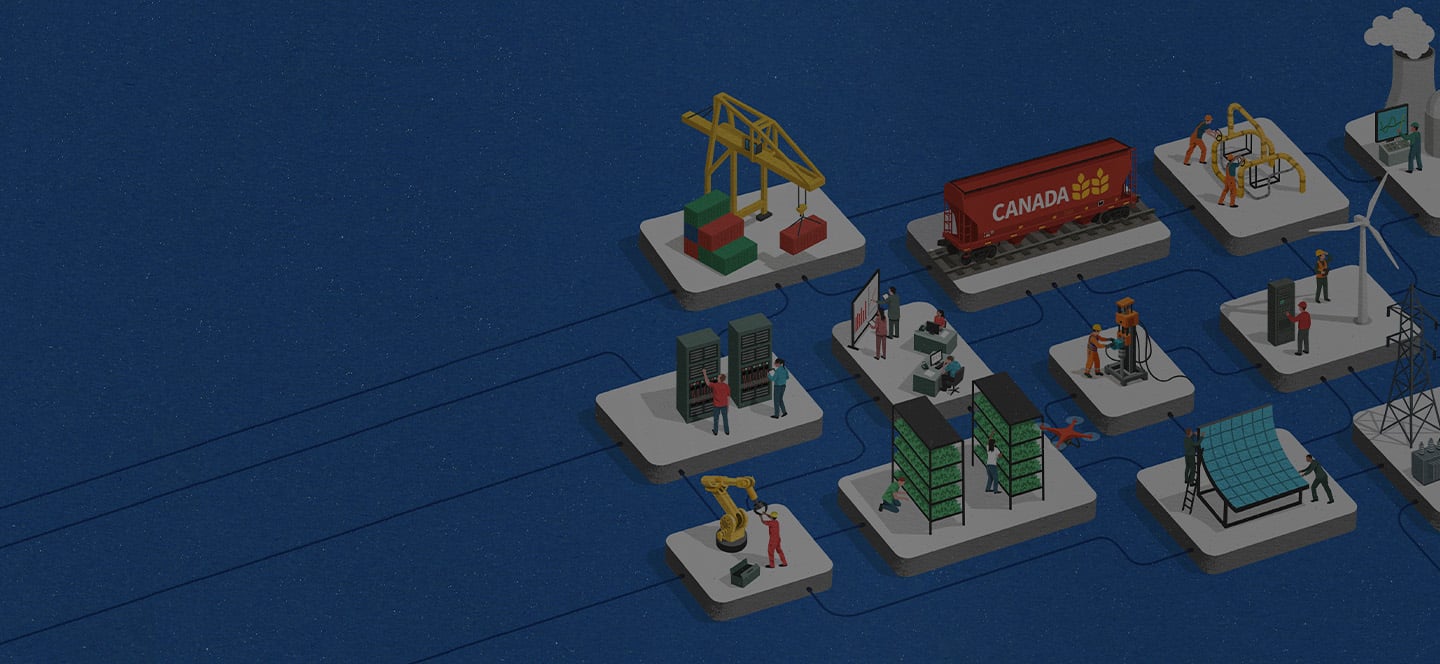On the fourth and final day of the 2023 World Petroleum Congress in Calgary, Bennett Jones' Shawn Munro and Luke Morrison spoke with conference attendees about biofuels and renewable natural gas (RNG) from both regulatory and commercial perspectives. They also discussed how sustainable aviation fuel (SAF) is critical for the decarbonization of the aviation industry.
A Positive Regulatory Environment for Biofuels and RNG
The regulatory winds are firmly behind biofuels and RNG projects in Alberta and throughout western Canada. The region is attractive because there is significant access to the feedstock that is needed to produce the fuels. There is also plenty of room to develop projects close to the feedstock and to move the final product to an end use.
The key steps in developing a biofuel or RNG project in Alberta are:
- Obtaining industrial approval from Alberta's Ministry of Environment and Protected Areas as it relates to the province's Environmental Protection and Enhancement Act (EPEA).
- A project may trigger an Environmental Impact Assessment.
- Power generation projects require approval from the Alberta Utilities Commission under the province's Hydro and Electric Energy Act.
- Water diversion is a significant issue. Depending where a project is located in Alberta, proponents may need a water license. There are also issues of zoning and self-supply.
- Alberta's Natural Resources Conservation Board oversees approvals on feedlots. If a project involves storing manure, approval will be needed.
One of the most important considerations in project development continues to be engaging the public and engaging Indigenous communities. Joint ventures with Indigenous communities are becoming more and more common and are very beneficial for all parties.
There is nothing better project proponents can do initially than to create a roadmap—to decide what is needed, how long it will take, how steps can be dovetailed together and what is needed supported the applications.
Bennett Jones has written on Regulatory Considerations for Renewable Natural Gas Projects in Alberta in a previous update.
Commercial Factors to Consider
For all of the regulatory positives with biofuel and RNG projects in western Canada, there are some commercial obstacles that need to be considered.
- Capital Costs: The combination of a plant's engineering, procurement and construction costs and the need for a pipeline connection can be high. There is a need for lower-cost technology as biofuels and RNG are still more expensive than natural gas. Grants from Emissions Reductions Alberta can bridge the gap and enable the completion of FEED.
- Pipeline Access Distribution: In pipeline access distribution, utility companies are on board but have specifics and complex processes, such as early termination payments. Government support and funding is very important in this area.
- Feedstock: While western Canada has an overall abundance of feedstock, they can come from disparate sources. This can create supply chain challenges. Biofuels from landfill and large scale agricultural operations are highly localized.
The Aviation Industry Can Only Decarbonize with SAF
On Day Two of the World Petroleum Congress, WestJet's Chief Executive Officer said the airline's most direct path to achieve its target of net-zero emissions by 2050 hinges on the future of SAF production.
While the aviation industry is responsible for only 3 percent of Canada’s overall annual GHG emissions, it is one of the few remaining sectors where emissions have continued to increase over the past decade.
SAFs are a "drop-in" solution that can replace fossil jet fuels without the need to modify existing aircraft engines or infrastructure. To date, no SAF has been produced in Canada.
The Government of Canada released Canada's Aviation Climate Action Plan (2022-2030) in September 2022, which aims to have 10 percent of all aviation fuel used come from sustainable sources by 2030.
In June 2023, the Canadian Council for Sustainable Aviation Fuels (C-SAF) launched a Roadmap for the country's aviation sector to remain competitive as it transitions to a net-zero future by 2050.
In other jurisdictions, the EU announced new SAF standards on September 13, 2023. Fuel suppliers must ensure that 2 per cent of fuel made available at EU airports is SAF in 2025, gradually rising to 70 percent in 2050. In the U.S., producers of SAF are eligible for a tax credit of $1.25 per gallon.
Bennett Jones has written on Sustainable Aviation Fuel and Decarbonizing Canada's Aviation Industry in a previous blog.
To learn more about regulatory and commercial considerations in biofuels, RNG and SAF, contact Luke Morrison or Shawn Munro.
More WPC 2023 RecapsBennett Jones provided daily blogs with briefing notes of crucial developments from WPC 2023, the Olympics of the petroleum industry. Read the other insights here: Day One: Canada as a Global Energy Supplier |




















